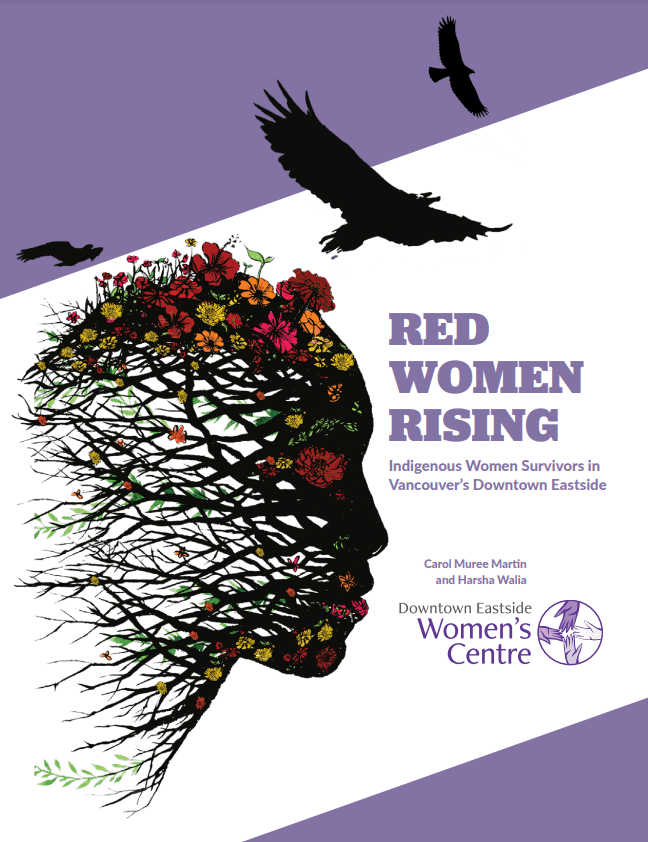37 search results
for
Culture and language
Recommendations to guarantee economic security for Indigenous women in the DTES
Universal public services
Recommendation 83: Guarantee a free and culturally appropriate child care system for all Indigenous families, including families awaiting kinship care placements. Child care must accommodates families’ diverse schedules, be available to children of all needs and abilities, and must be independent from child welfare services.-
Category and theme:
Audience:
Groups affected:
Location of recommendation:
Recommendations to guarantee economic security for Indigenous women in the DTES
Universal public services
Recommendation 86: Implement better educational supports:- Expansion of the Head Start program for Indigenous families.
- Guarantee a school breakfast and lunch food program in all public schools that is free, nutritious, and culturally diverse.
- More Indigenous-focused schools with Indigenous teachers, Indigenousbased educational methodology and curriculum, and that is supportive to urban Indigenous students needs and contexts.
-
Category and theme:
Groups affected:
Location of recommendation:
Recommendations for safe and affordable housing for Indigenous women in the DTES
Recommendation 89: The Definition of Indigenous homelessness in Canada should form the basis of all policies on Housing and homelessness with appropriate solutions to homelessness that integrates land, culture, belonging, and kinship networks.-
Category and theme:
Audience:
Groups affected:
Location of recommendation:
Recommendations for safe and affordable housing for Indigenous women in the DTES
Recommendation 90: Comprehensive federal, provincial, and municipal Indigenous Housing policy framework to specifically address Indigenous homelessness.-
Category and theme:
Audience:
Groups affected:
Location of recommendation:
Recommendations for safe and affordable housing for Indigenous women in the DTES
Build social housing and transition homes
Recommendation 97: Any new social housing must consider the needs of Indigenous women, such as adequate space for children and extended families, cooperative housing models, accommodating cultural and ceremonial practices, equipped for mobility devices and accessibility for elders, and with integrated services such as child care, free laundry, and programming on-site.-
Category and theme:
Audience:
Groups affected:
Location of recommendation:
Recommendations to keep Indigenous families together in the DTES
Recommendation 111: Implementation of and full funding for federal Indigenous Child Welfare legislation that is attentive to specific First Nations, Metis, and Inuit needs. Ensure that Indigenous nations resume sole jurisdiction—and not simply service delivery—over child welfare for child-members of the nation who are on reserve and off reserve. This is in accordance with the United Declaration on the Rights of Indigenous Peoples.-
Category and theme:
Groups affected:
Location of recommendation:
Recommendations to keep Indigenous families together in the DTES
Recommendation 112: In full partnership with First Nations, INAC must immediately:- Fully redress the inequities and structural problems of funding for First Nations children.
- Support funding and policy options proposed by First Nations for child and family services.
- Ensure that a formal compliance and reporting program be established specifically for the First Nations Child and Family Services Program.
-
Category and theme:
Audience:
Groups affected:
Location of recommendation:
Recommendations to keep Indigenous families together in the DTES
Recommendation 113: We applaud the work of Dr. Cindy Blackstock and the First Nations Child and Family Caring Society and call on the federal government to comply with the legally-binding orders of the Canadian Human Rights Tribunal to:- Immediately and fully apply Jordan’s principle to all First Nations children living on and off reserve.
- Apply Jordan’s principle based on the need of the child and not limited to the normative standard of care.
- Ensure that administrative delays do not delay service provision and respond to most cases within 48 hours.
-
Category and theme:
Audience:
Groups affected:
Location of recommendation:
Recommendations to keep Indigenous families together in the DTES
Recommendation 114: Implement the Truth and Reconciliation Commission’s Call to Actions on Child Welfare, recommendations in Indigenous Resilience, Connectedness and Reunification – From Root Causes to Root Solutions by Special Advisor Grand Chief Ed John, and recommendations in Calling Forth Our Future: Options for the Exercise of Indigenous Peoples’ Authority in Child Welfare by the Union of BC Indian Chiefs.-
Category and theme:
Audience:
Groups affected:
Location of recommendation:
Recommendations to keep Indigenous families together in the DTES
End child apprehensions
Recommendation 115: End the apprehension of Indigenous children due to poverty or Eurocentric ideas of neglect that stem from a legacy of colonization. Poverty must not be conflated with neglect or mistreatment, and removing children from their families exacerbates cycles of trauma and poverty.-
Category and theme:
Audience:
Groups affected:
Location of recommendation:
